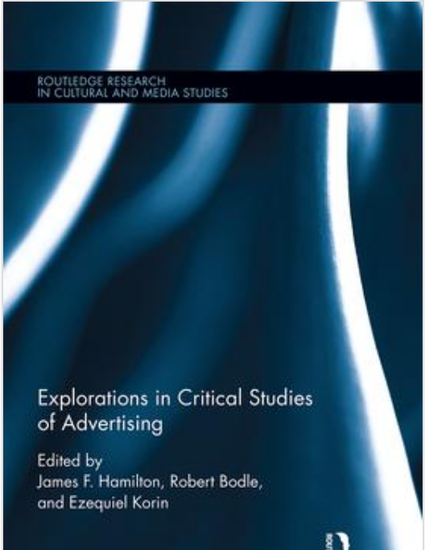
Contribution to Book
“Affect Theory and Advertising: A New Look at IMC, Spreadability, and Engagement"
Explorations in Critical Studies of Advertising
(2016)
Abstract
Affect theory is particularly useful for understanding people’s encounters with advertising as lived experience, in space and time (McStay 2013). Beyond focusing on advertising as representation, and our analytic activity on parsing how these representations work semiotically, the study of affect draws our attention to how a series of encounters with a brand, through various modes and channels, accumulates into a dynamic affective relation between consumer and brand. In this way, it has analytic fit with the industry practice of IMC (Integrated Marketing Communications), and helps us understand the importance of media buying and placement, behavioral targeting, out-of-home, sponsorship, and mobile advertising – arguably all understudied aspects of contemporary advertising practice. Further, affect theory can help us gain greater purchase on the power of virality, or spreadability, as Jenkins, Ford, and Green (2013) argue we should call it: how advertising that is passed among people through their social networks, especially with speed, acquires an affective intensity that may not be apparent just from analyzing the promotional image or text. An affective conceptualization of advertising also helps us understand the industry shift from seeking consumer attention to cultivating consumer engagement with brands.
Keywords
- affect theory,
- advertising,
- integrated marketing communications,
- digital sharing
Publication Date
2016
Editor
James F. Hamilton, Robert Bodle, and Ezequiel Korn
Publisher
Routledge
Citation Information
Emily West. "“Affect Theory and Advertising: A New Look at IMC, Spreadability, and Engagement"" New YorkExplorations in Critical Studies of Advertising (2016) p. 248 - 260 Available at: http://works.bepress.com/emily_west/28/
